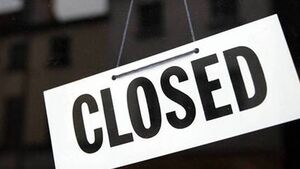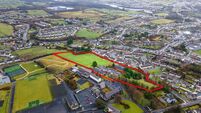Mayo businesses left 'sickened' by rates increase

A Mayo councillor fears a recent rates hike could close some businesses in the county.
A councillor has said under-pressure businesses are “sickened” by an increase in the commercial rates in the county.
Mayo County Council is to implement a 5% rates increase, although the annual budget meeting of the local authority was told that the increase will not impact 90% of ratepayers. The increase included an offset for small businesses with a rateable valuation of less than €42,500.
Cllr Michael Loftus is concerned that the rates increase will impact more than just the big multiples with shopkeepers and filling stations also feeling the pinch.
“It’s going to affect an awful lot of businesses,” he commented.
At the budget meeting, Cllr Loftus questioned whether the annual rate of valuation could be adjusted from €42,500 to €70,000. He was informed that would require an additional €110,000 to be found in this year’s budget.
“If three or four businesses close in each of the municipal areas that will equate to the €100,000 it would have cost the council to increase the valuation,” he remarked. “If that valuation was increased, it would have included an awful lot of the petrol stations, the smaller shops, and businesses that are over the threshold."
The Crossmolina councillor said some of his fellow councillors fail to grasp the realities for business people.
“Unfortunately, it was driven through by my fellow councillors who have no undersnding of the impact rates have on businesses.”
He said businesses are under intense pressure.
"I know one example of a petrol station that has had to contend with a rates increase after having to spend €40,000 on a filtering system for any spilled oil. They had to do that as part of their planning. These are the things that people don't realise. The margins on petrol at the moment are 6% if you would even get that," said Cllr Loftus, who ran his own supermarket for a period.
He said mounting electricity costs are also hampering businesses.
"When I was in the supermarket it was about €50,000 a year, now it's €92,000. That's practically double for the year."
He said smaller and more rural shops who do not have the same level of footfall as larger urban centres face the biggest struggle.





